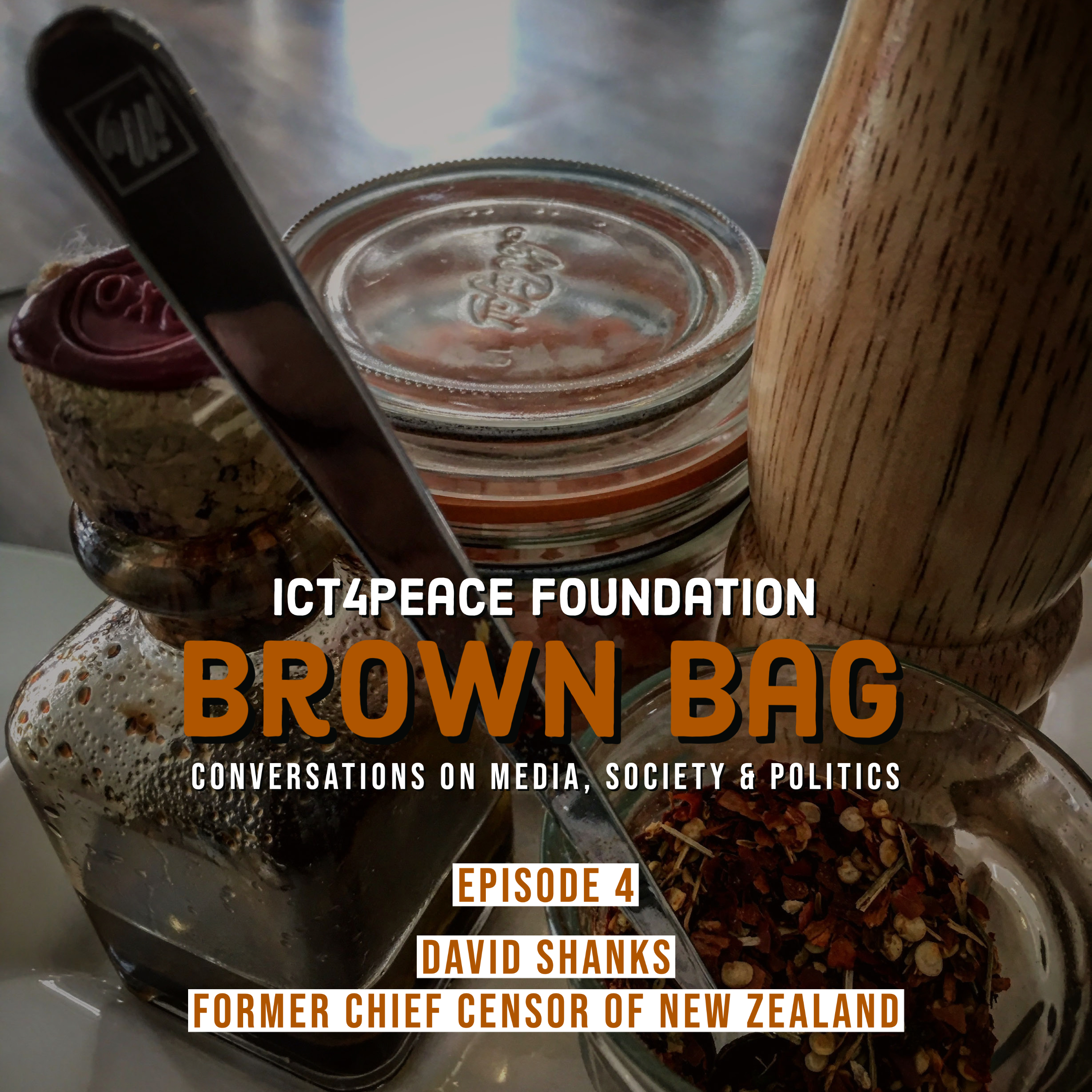ICT4Peace is delighted to release Episode 4 of Brown Bag, the ICT4Peace podcast series on social media, politics, democracy and society from a Global South perspective, hosted and produced by ICT4Peace Foundation’s Special Advisor, Dr Sanjana Hattotuwa.
In Episode 4, Hattotuwa speaks with David Shanks, the former Chief Censor of New Zealand. The conversation covers a diverse spectrum of issues, starting with how the world’s last Chief Censor (!) did what he did, and the institutional architecture in New Zealand dealing with film classification, which attempts to grasp the nettle of online content, and associated harms. Shanks talks at length about the Christchurch massacre in March 2019 – an unprecedented event for country, and community. He talks about what had to be done in order to significant harms that resulted from the release of the killer’s screed, as well as his livestream. Hattotuwa and Shanks talk about the fall-out of the massacre, and how it fundamentally changed the nature of what he, and his office dealt with in relation to the seed, and spread of online harms, including white-supremacist material. Shanks talks about how after the Covid-19 pandemic, information disorders increased significantly, leading to harms to public health, as well as social cohesion, arising from misinformation, and disinformation. The significant, and growing challenges addressing these issues from a regulatory perspective are also covered. Shanks then talks about the nature of social media platforms, and what they can do, have done, and haven’t yet managed to bring about by way of harm reduction, and addressing disinformation. New Zealand’s approach to social media regulation, and media regulation in order to address dangerous speech, and the identification of harms based on endogenous values, is covered in some detail next.
Listen to the podcast on SoundCloud, or use the embedded player below, which also lists previous episodes.
Brown Bag is also on Spotify, Google Podcasts, Amazon Music and Apple Podcasts.
This production of this podcast series is supported by the Daniel Gablinger Foundation.

